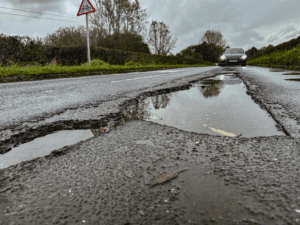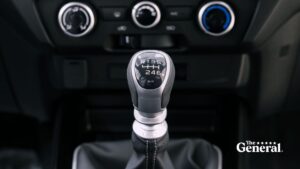California lawmakers call for stricter regulation of autonomous vehicles

California lawmakers and labor unions rallied on Monday to call for laws to not allow autonomous trucks without human drivers, amid rising safety concerns after accidents involving self-driving taxis from General Motors and Alphabet.
A robotaxi from Alphabet’s Waymo was torched by people celebrating Chinese New Year on Saturday, marking the most destructive attack so far on driverless vehicles in the U.S. This comes after a Waymo vehicle hit a cyclist at a city intersection last week and a major accident in October where a GM Cruise robotaxi hit and dragged a pedestrian 20 feet (6 meters).
The act of vandalism reflect a chaotic environment for robotaxis in San Francisco, where public ire has risen after the dragging and bicyclist accidents. State lawmakers are pushing for stricter control through two bills.
“Those accidents have put an exclamation point on the need for legislation,” Senator Dave Cortese, sponsor of a bill that would also give cities control over permits for AVs and enforcement of AV-related laws. Now, only state regulators control permitting.
The other bill requires a trained human driver to be present behind the wheel of self-driving vehicles weighing more than 10,001 pounds, a classification that includes commercial trucks.
“It’s a common sense measure that keeps humans on board a truck until we have a plan for our workers and we’re sure that tech bros aren’t jamming unsafe technology down our throats,” State Assembly member Cecilia Aguiar-Curry said at the rally on Monday.
An earlier version of the same truck bill was passed by state lawmakers last year, but Governor Gavin Newsom vetoed it, saying the current regulatory framework was enough to ensure safety. It was reintroduced in the state assembly on Thursday, in light of the Cruise accident.
The Teamsters, one of America’s biggest unions, has long opposed the deployment of AVs citing safety hazards and job losses, and it backs both bills.
The Cruise and Waymo incidents “illustrate that this technology is not ready for prime time and that we can’t trust these big tech corporations to regulate themselves,” Peter Finn, a vice president at the union said.
Tech companies are major contributors to the economy of California, and tightening regulations on autonomous vehicles is perceived by some as complicated.
Waymo did not immediately respond to requests for comment on calls for more regulation and rising safety concerns. Cruise has said its handling of the October accident was a mistake and has offered to settle an investigation by a state regulator.
Many states, including Texas and Arkansas, allow the testing and operation of self-driving trucks. California already bars heavy-weight autonomous trucks but is in the process of creating regulations that would allow it. The re-introduced truck bill would delay that process.
Governor Newsom “will evaluate the bill on its merits if it reaches his desk,” a spokesperson told Reuters, declining to comment further on pending legislation.
Autonomous trucks, which operate mostly on set routes and highways, have avoided high-profile accidents.
While Cruise is facing multiple investigations, including one by the Department of Justice, the Waymo incidents are being investigated by the city police.
(Reporting by Abhirup Roy in San Francisco and Mrinmay Dey and Jyoti Narayan in Bengaluru; Editing by Himani Sarkar)





